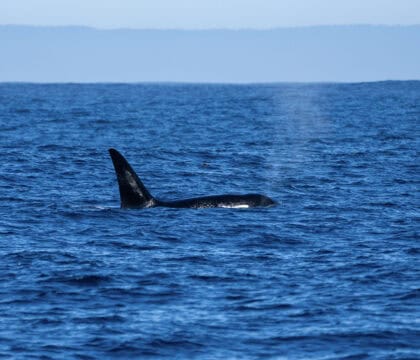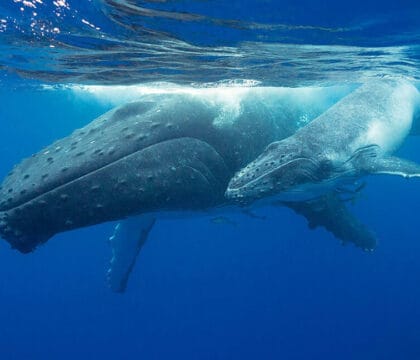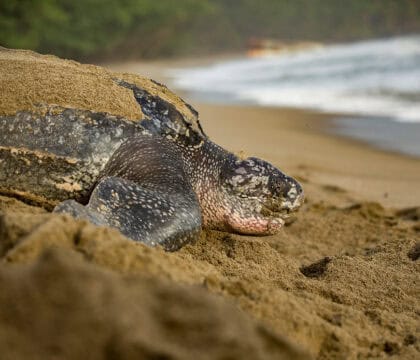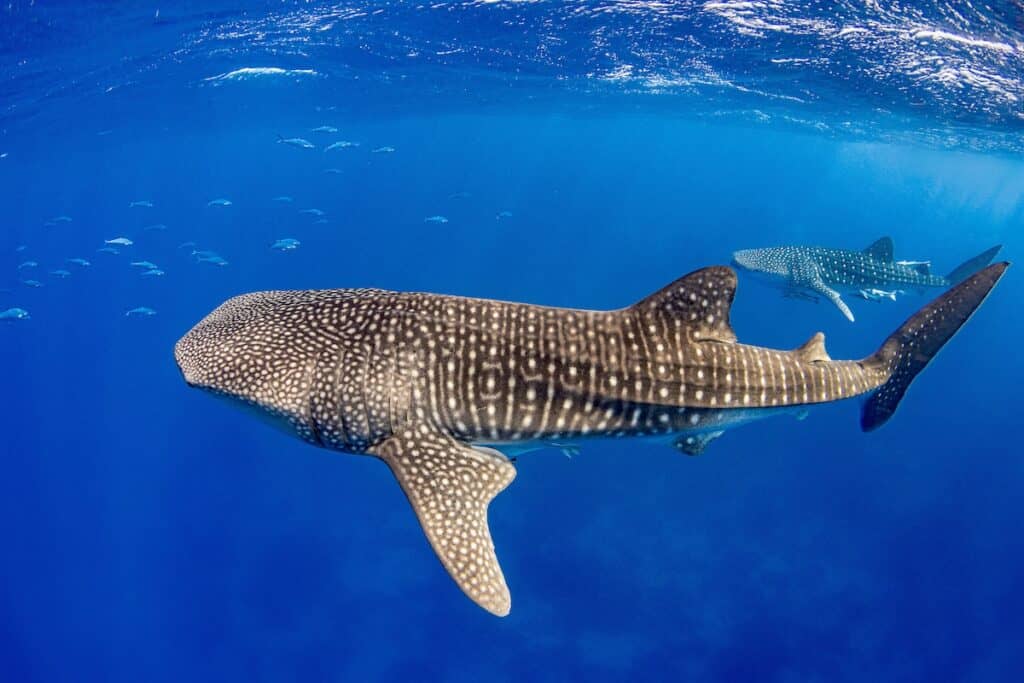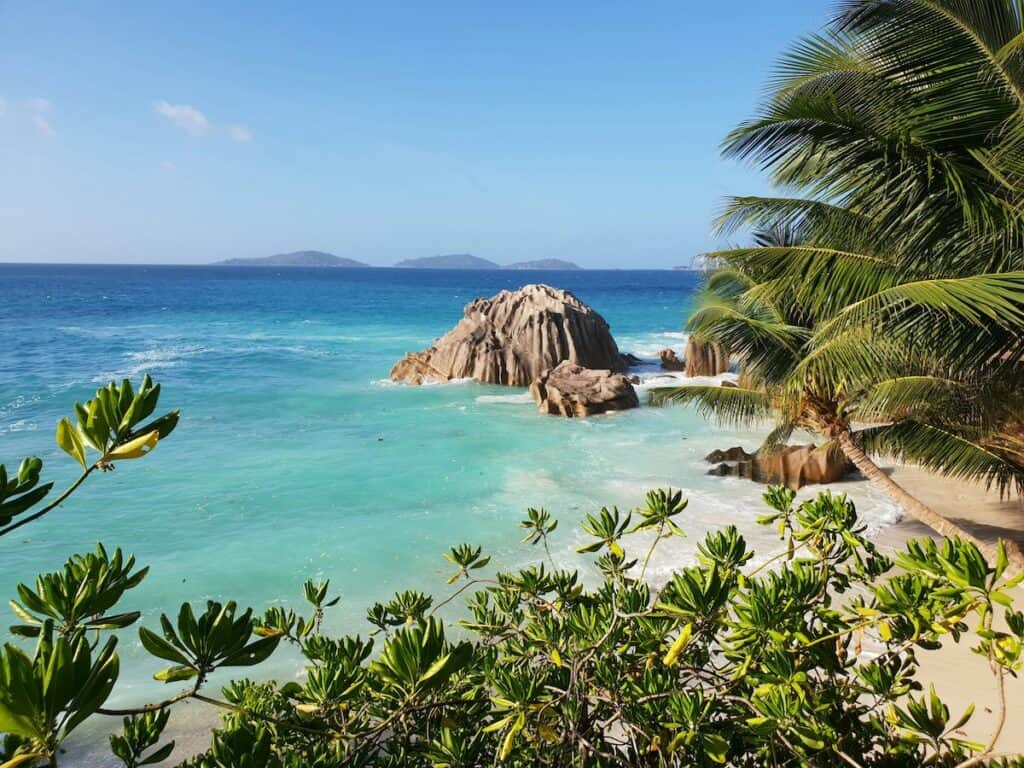March 29, 2019 • Blue Habits Tips, News Announcements, Program Updates
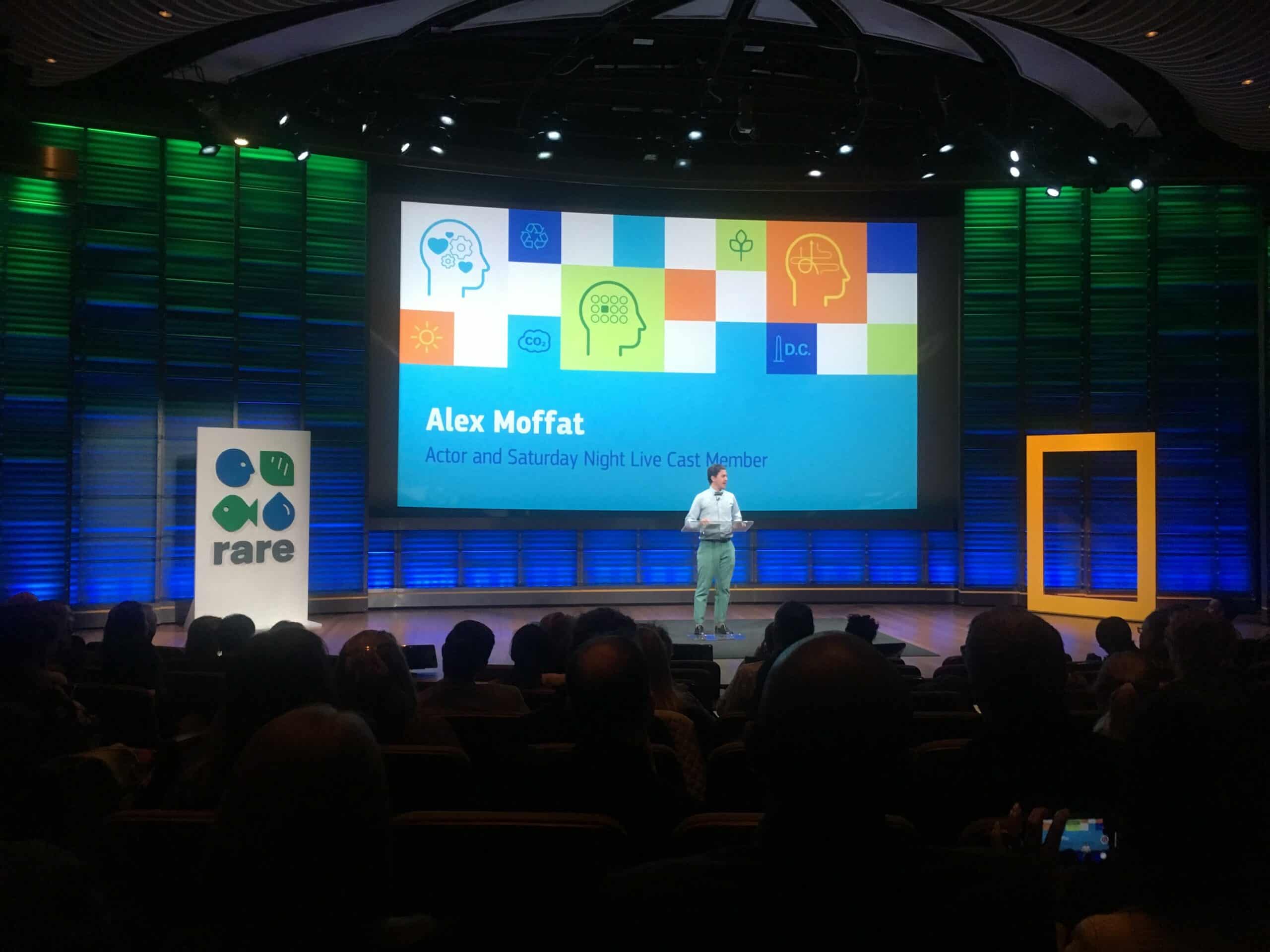
Alex Moffat, cast member of Saturday Night Live, emceed the Be.Hive conference
On Tuesday March 19, members of Oceanic Society’s team joined nearly 400 other participants at the BE.Hive: Climate Change Needs Behavior Change summit organized by Rare and National Geographic in Washington, DC.
The full-day summit brought together a diverse set of speakers including renowned climate and behavioral scientists, business leaders, artists, and entertainers—even a magician. The goal of the conference was to explore how to use human behavior insights to create solutions for climate change.
Here Are Our Top 5 Takeaways From the Summit:
1. Social norms are powerful
Across behavioral science research, it is well understood that social norms play a critical role in shaping individual behavior; people are more likely to do things that they think/see other people are doing. Humans are social animals, and we often model our decisions and behaviors after the everyday actions that we observe in the people around us, especially those that we look up to.
At the event, many studies were presented that reinforced this concept. For example, Cornell University professor Bob Frank cited the contagion or “neighbors effect” observed with installations of residential rooftop solar panels across the U.S. Studies show that once an individual in a neighborhood installs solar panels on their roof, it significantly increases the likelihood that other neighbors will follow suit.

SolarCity, the largest installer of solar rooftop systems in the U.S., found that 1/3 of the 230,000 systems installed were referred by a friend or neighbor. Maps like below show how this effect is consistent across the U.S. with increases in rooftop systems emerging in residential clusters.
SolarCity, the largest installer of solar rooftop systems in the U.S., found that 1/3 of the 230,000 systems installed were referred by a friend or neighbor. Maps like below show how this effect is consistent across the U.S. with increases in rooftop systems emerging in residential clusters.
2. Momentum breeds momentum
In addition to the overall influence of established social norms, seeing norms that are emerging / trending in popularity (called dynamic norms) can be even more powerful in influencing peoples’ behavior. Research shows that people are willing to change their behavior if they witness new behaviors that indicate a new social norm is forming, even if that means behaving in a way that is out of step with current social norms.
For example, researchers at Stanford University found in a series of studies that people ate less meat and conserved more water when they were provided with information suggesting that those behaviors were part of a growing societal trend. In one of the studies, people waiting in line at a cafe were provided with one of two statements: 1) “30% of Americans make an effort to limit their meat consumption.” or, 2) “Over the last 5 years, 30% of Americans have started to make an effort to limit their meat consumption.” Those who read the second statement, which emphasized emerging changes to societal norms rather than current norms, were 2x more likely to order a vegetarian meal.
3. When it comes to making decisions, identity outweighs information
More often than not, our decisions and behaviors are not based on logic. Instead, our social identities lead the way.
Presenting facts, statistics, and information, no matter how compelling, is largely ineffective in spurring long-term behavior change. What really works is tapping into the complexity of why people do what they do and understanding the inner workings of how individuals view and respond to the world around them.
Chris Graves, President of the Olgivy Center for Behavioral Science, shared a variety of examples emphasizing that in order to change behaviors the problem or desired behavior must be presented in a way that is concrete, tangible, and relatable. We respond to people and situations we can relate to and identify with. If we cannot picture or imagine a scenario in our own lives, we place less value and importance on it.
These behavioral insights have the potential to help make significant improvements in areas we often struggle to make the best decisions, including health and wellness, personal finance, and pro-environmental behaviors.
4. People favor the status quo — and can adjust to a new one if it shifts
Professor Elke Weber of Princeton University highlighted our tendency to favor the status quo, but also our ability and quickness to adjust to a new status quo.
In 2002, when New York City mayor Michael Bloomberg expanded the citywide smoking ban to include bars and small businesses, he received huge pushback and a drop in approval ratings. Business owners fretted about revenue loss and smokers objected to the inconvenience. However, despite initial disapproval at the announcement, just over a year after its implementation support for the policy increased dramatically once “no smoking” became the new status quo. Similar results were observed with the implementation of a carbon tax on fossil fuels in British Colombia in 2008, with positive public sentiment returning just 7-8 months after implementation.
While such bold new policies may receive initial pushback, once a new status quo is established, people quickly adapt to favor the new policy.
5. Individual behaviors add-up
Rare’s President and CEO Brett Jenks closed the summit by presenting a simple, 7-step guide for individuals to combat climate change. His inspirational message was that if just 10% of Americans adopt seven behaviors, the U.S. would still meet our emissions reduction target set by the Paris agreement, even as our government withdraws from the agreement.
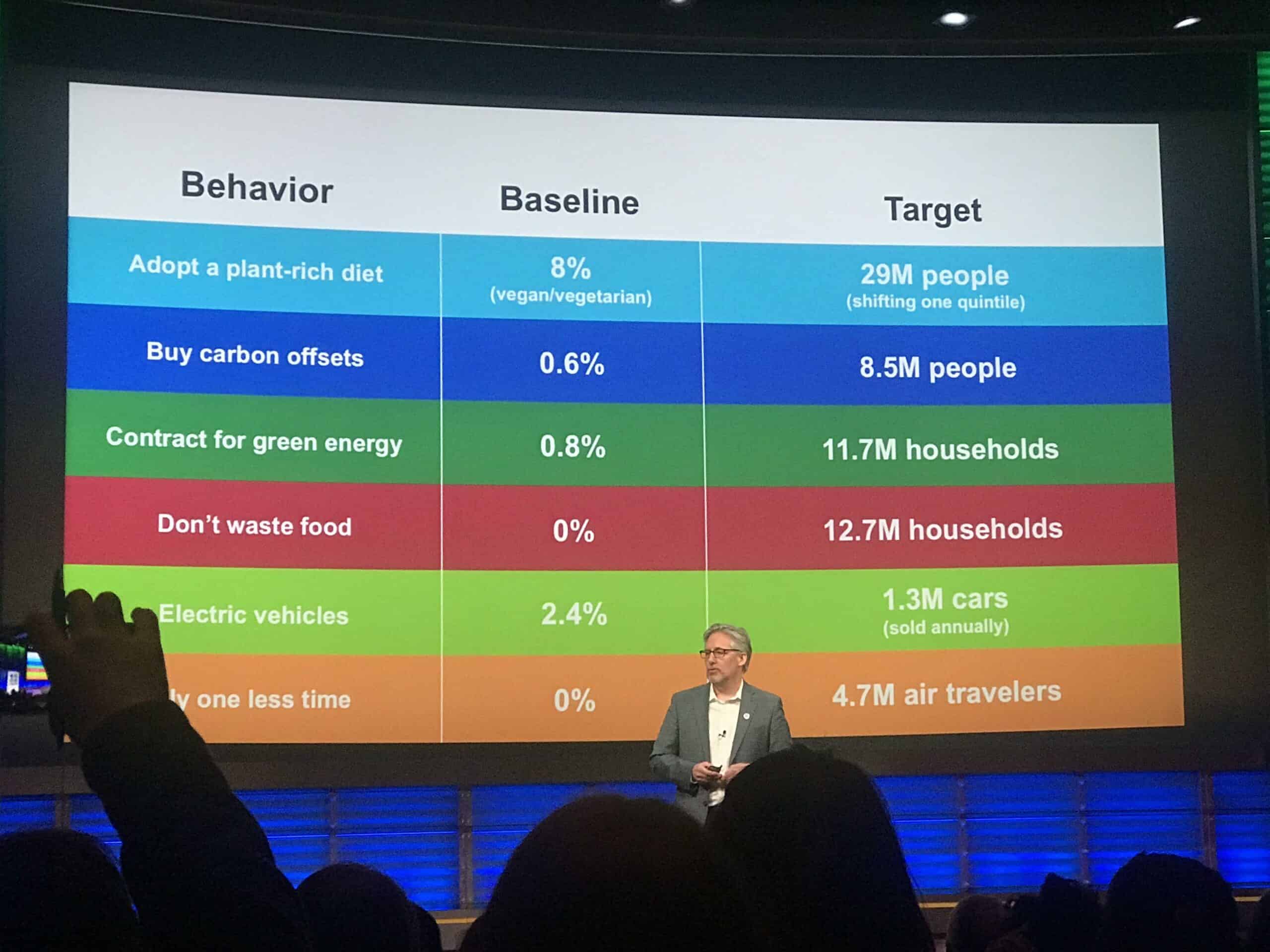
Rare CEO Brett Jenks presents 7 key individual behaviors for climate change.
Brett also reminded us that the overwhelming majority of Americans are deeply concerned about climate change, and that people are becoming increasingly concerned over time.
In today’s world where it is easy to feel overwhelmed and helpless, this message made it clear that everyday actions can, and do, add-up to significant impact and that change is underway.
Join the millions of people around the world already taking action.
To learn more about what behaviors you can change to combat climate change and improve ocean health, join our community at www.BlueHabits.org.

